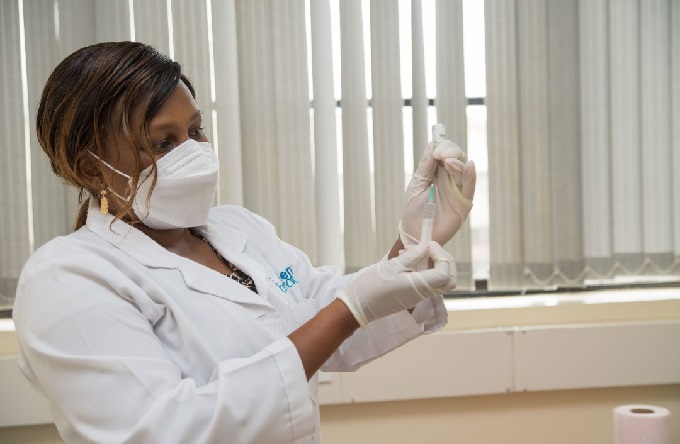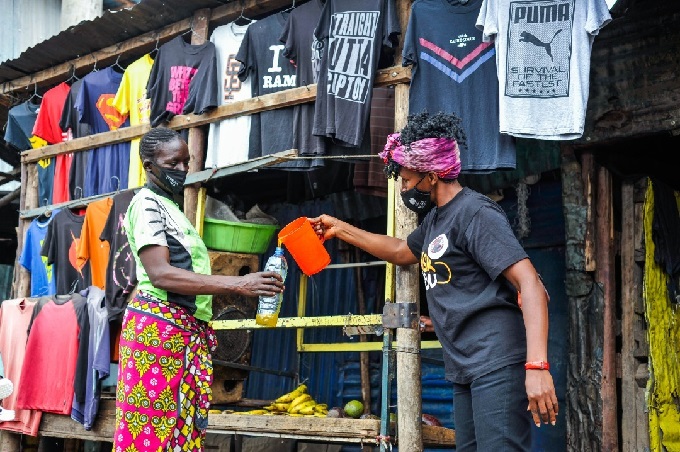
The Mastercard Foundation and Africa CDC initiative – Saving Lives and Livelihoods – which has so far greatly helped the continent deal with the Covid-19 pandemic, is one year old.
The initiative is said to be the largest public health partnership between a global philanthropic organisation and an African institution.
A joint statement issued by the partners said the initiative has proven to be catalytic and is now a $1.5 billion partnership with four key objectives, namely:
- To purchase COVID-19 vaccines for at least 65 million people
- To drive millions more vaccinations by enabling the delivery and administration of vaccines.
- To lay the groundwork for vaccine manufacturing by focusing on human capital development.
- To strengthen the capacity of Africa CDC.
“The Saving Lives and Livelihoods commitment to purchase 65 million vaccine doses was instrumental in enabling the African Vaccine Acquisition Trust to negotiate and secure 510 million doses for Africa from vaccine manufacturers. The initiative also helped inform the decision of African Union Heads of State to designate the Africa CDC as an autonomous public health agency. Additionally, the initiative has delivered over 15 million vaccines across the continent since its launch while deploying rapid responders to accelerate vaccination campaigns in countries at-risk of vaccine expiration”, said the statement.’

The statement quotes President and CEO of the Mastercard Foundation, Reeta Roy to have said at the one-year commemoration that the next phase of the Saving Lives and Livelihoods initiative would focus on turning vaccine delivery into vaccinations.
“We must lean in and focus on vaccination uptake. It is an opportunity to work with governments to help set up vaccination centres, train and support health care workers, and engage directly with communities to understand the importance of getting vaccinated to secure the lives and livelihoods of their loved ones,” she said.
Dr. Ahmed Ouma, Acting Director of the Africa CDC, also affirmed that COVID-19 vaccination remains a key priority for Africa, as the continent works towards a target of ensuring 70 percent of the population is vaccinated by the end of this year.
She said so far, two African countries have achieved a vaccination rate of 70 percent, and six African countries have vaccinated between 40 and 70 percent of their populations while overall, less than 20 percent of the people in Africa are fully vaccinated.
“Today, we commemorate the first anniversary of the Mastercard Foundation’s partnership with the Africa CDC to purchase and deliver millions of vaccines and drive long-term health security in Africa. We reiterate our commitment and drive towards the new public health order, which calls for a strengthened Africa CDC and our National Public Health Institute. To increase investment in the public health workforce and train the next generation of leaders and experts. Finally, to expand local manufacturing of vaccines, diagnostics, and therapeutics, which will ensure quick access and reduced costs in the continent,” he said.
Dr. Ahmed Ouma also emphasised the importance of focusing vaccination efforts on young people, given that 70 percent of Africa’s population is under the age of 30. The African Union and Africa CDC, under the Saving Lives and Livelihoods initiative, recently launched an initiative called Bingwa (a Swahili word meaning champion) to recruit young people as vaccine advocates in their communities.
The statement said moving forward, the Saving Lives and Livelihoods initiative will include a strong focus on Risk Communication and Community Engagement (RCCE) to enable African citizens, particularly young people, and rural populations, to understand the safety and benefits of vaccination.
The RCCE will be expected to play a crucial role in creating demand for and uptake of COVID-19 vaccinations and supporting other non-pharmaceutical efforts to break the transmission chain and mitigate the pandemic’s impact.
SOURCE: Graphiconline






















